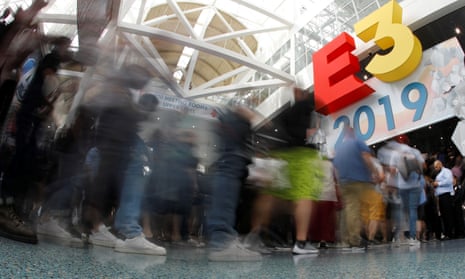A new Xbox was announced, but not shown
Next to some of the games console announcements of E3s past – such as Sony’s $599 PlayStation 3, or the Wii U’s confusing reveal, which left attendees wondering whether it actually was a new console – Microsoft’s Project Scarlett announcement went pretty well. It’s coming late next year, it’s a new Xbox with four times the power of the current one, and it’ll launch with Halo Infinite. But the absence of a name for the thing, or a fancy box to look at, felt strange. Instead, we got a lot of tech specs and a video of the product team talking up the machine’s capabilities. It’s good to know a new console is coming, but what we really want to know is how much it will cost and what it can do.
Cyberpunk 2077’s mixed fortunes

Developer CD Projekt Red had a weird E3. On the one hand, Keanu Reeves turning up to introduce the game and announce his role in it made easily the biggest splash of the entire show, generating further excitement for what was already a highly anticipated game. On the other hand, the company was dragged all week on Twitter over the irony of making a supposedly anti-corporate cyberpunk game when it is known for overwork practices. And for worrisome racial representation gaffes pointed out by journalists who’d played the demo. And for an in-game advertisement featuring a sexualised transgender model. Cyberpunk 2077 perfectly encapsulates the culture surrounding big games in 2019: the hype may be huge but so is the scrutiny – long before a game is actually released.
Watch Dogs Legion shows a dystopian post-Brexit London
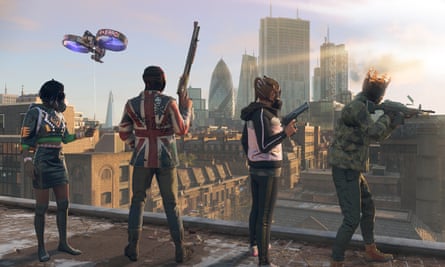
The other cyberpunk game of the show was Ubisoft’s Watch Dogs Legion, set in a post-Brexit, corporate-dystopia future London where you can recruit any citizen to the hacker resistance: a tribute to the power of collective action, perhaps, but with elderly-lady assassins, drones, face-hugging killer robots and comical violence. The game looked properly impressive, not least because being able to play as any person in a whole city is unprecedented. It also features a geographically accurate London populated by people of all races, ages and genders, instead of some cartoonishly simplified version of the city inhabited entirely by cockney gangsters. (The cockney gangsters are nonetheless present – what would any pop-culture depiction of London be without some dodgy accents?) The indications are promising that this is a game with something to say.
Everyone wants to be the Netflix of gaming
Good news, everyone: it looks as though you’ll soon be able to add a raft of slightly confusing video-game options to your Spotify, Netflix, Amazon Prime and PlayStation Plus subscriptions. From Ubisoft’s Uplay+ and Xbox Game Pass Ultimate to Google Stadia, it seems everyone is desperate for you to set up a direct debit in return for access to a back catalogue of games and some new releases. Theoretically these subscriptions could offer great value – games are expensive after all – but not if you have four of them at once. And there are still many unanswered questions: how will this affect developers’ revenues long-term, after Google and Microsoft are done propping up the finances? Might it rescue the games industry from the games-as-service model, where behemoths like Fortnite dominate, or make it worse?
Where was the gameplay footage?
E3 always involves a certain amount of massaging when it comes to video game footage. Trailers are almost always pre-rendered, not actual, in-game action. Gameplay demos, meanwhile, are carefully managed so that things are unlikely to go wrong. Of all the games shown prominently at the press conferences this year, very few featured in-game footage. The worst offender was Square-Enix’s Avengers, hyped up for a big reveal and then shown in the form of a three-minute trailer featuring three seconds of what might have been actual play. The thing is, most of these games are playable on the show floor, and you can find long demonstrations on YouTube and gaming sites. So why the aversion to showing them in a form that’s closer to how we’ll be playing them?
Nintendo goes its own way
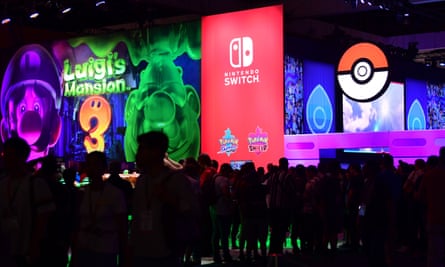
Nintendo has become a refreshing presence at E3, eschewing the bombastic press conferences for playful videos in which its executives banter with a CG Bowser and its developers talk through games about moving to a desert island and establishing a village full of weird animals. There’s nothing revolutionary about Animal Crossing, Zelda and Pokémon, but these games still have such emotional power, and in this age of subscriptions, optional purchases and continual online updates, there is something comforting about knowing exactly what a game is and what it will want from you. The rest of the Nintendo Switch’s slate comprised Japanese role-playing games, mech action games and ports of some of the best games of the last few years, giving the whole event a bit of a throwback vibe. Nintendo withdrew from the technological arms race years ago, investing instead in a convenient, clever console and quirky concepts like Nintendo Labo. Long may it continue.
Final Fantasy VII Remake wows everyone

Would it be possible to please everyone with a remake of the 22-year-old Final Fantasy VII? Yes, it turns out. People are obsessed with it. Looking amazing and playing just as beautifully, this meticulous remake has brought every Final Fantasy fan on the internet out of the woodwork to sing the praises of everything from the fashion and character designs to the reimagined combat. This is the most ambitious remake in video game history, no question: the city of Midgar alone will take up two Blu-Ray discs and tens of hours, necessitating an episodic release for the rest of the game.
The face of E3 is still the same
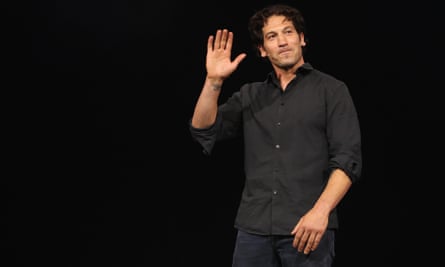
Last year, it was greatly encouraging to see women represented in most of the biggest games at the show, including The Last of Us 2, Battlefield V and Assassin’s Creed Odyssey. Female body types and different skin tones are now standard in any game in which you can create your own character. This year we learned that Animal Crossing will let you choose your character’s skin tone and has made its hairstyles gender-neutral. But in real life at E3, nothing much is changing: the developers and executives we see speaking about games are overwhelmingly white men. Pop-culture critics Feminist Frequency have been tallying E3 diversity stats for five years now: this year, of the 68 people on stage at E3’s various press conferences (among them Keanu Reeves and Jon Bernthal), just 14 were women.
George RR Martin and FromSoftware collaborate on a fantasy game
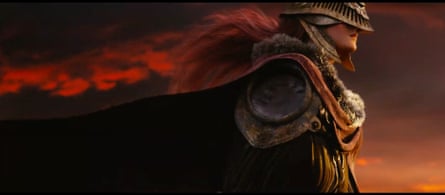
When the Game of Thrones author mentioned in an interview he was consulting on “a video game out of Japan”, the rumours started flying. How happy we were to discover it was a game by FromSoftware, makers of Dark Souls. Even without Martin’s involvement, any game from one of gaming’s great creative visionaries, Hidetaka Miyazaki, would be big news. Miyazaki is a devotee of fantasy (and Martin’s work), and after From’s last beautiful, action-heavy samurai game, Sekiro: Shadows Die Twice, Elden Ring is a return to more familiar thematic territory. “I loved A Song of Ice and Fire as well as the Tuf Voyaging series … I personally see Fevre Dream as a masterpiece among vampire fantasy,” Miyazaki told Xbox Wire. “Aside from the world of fresh stimulus thanks to our collaboration with Mr Martin, I would have to say the biggest difference is the scale of the world and its narrative … the depth and freedom of exploration have increased dramatically. It is without a doubt our biggest title yet in terms of sheer volume. It is a world full of danger and threats, as well as many areas ripe for exploration.”
Many happy returns
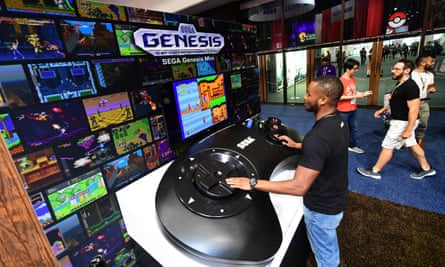
Gaming has been intergenerational for a while, since many of us in our 30s and 40s refuse to age out of them, and now it feels as though every major games company is reviving its past. Some beloved older games are being remastered or rereleased: Final Fantasy VIII, whose source code was long thought lost; Age of Empires 2; Trials of Mana, which never made it out of Japan in the 1990s. Others are being reimagined with the help of modern game technology: Zelda: Link’s Awakening and Destroy All Humans. And other series are being brought back from the dead with totally new instalments: Panzer Dragoon, Shenmue, Contra, Commander Keen, Psychonauts and, for some reason, Battletoads. In a neophile artform that has traditionally had little regard for its history, this is a positive development.
